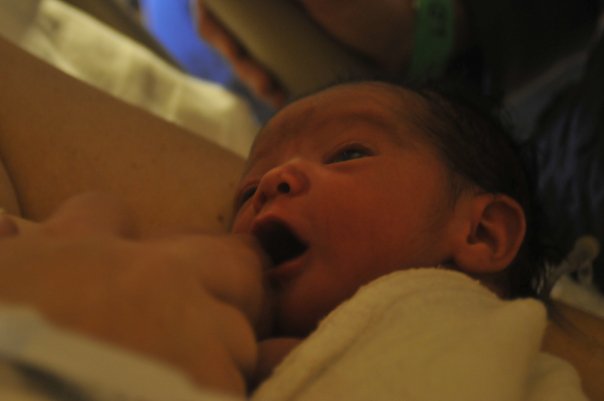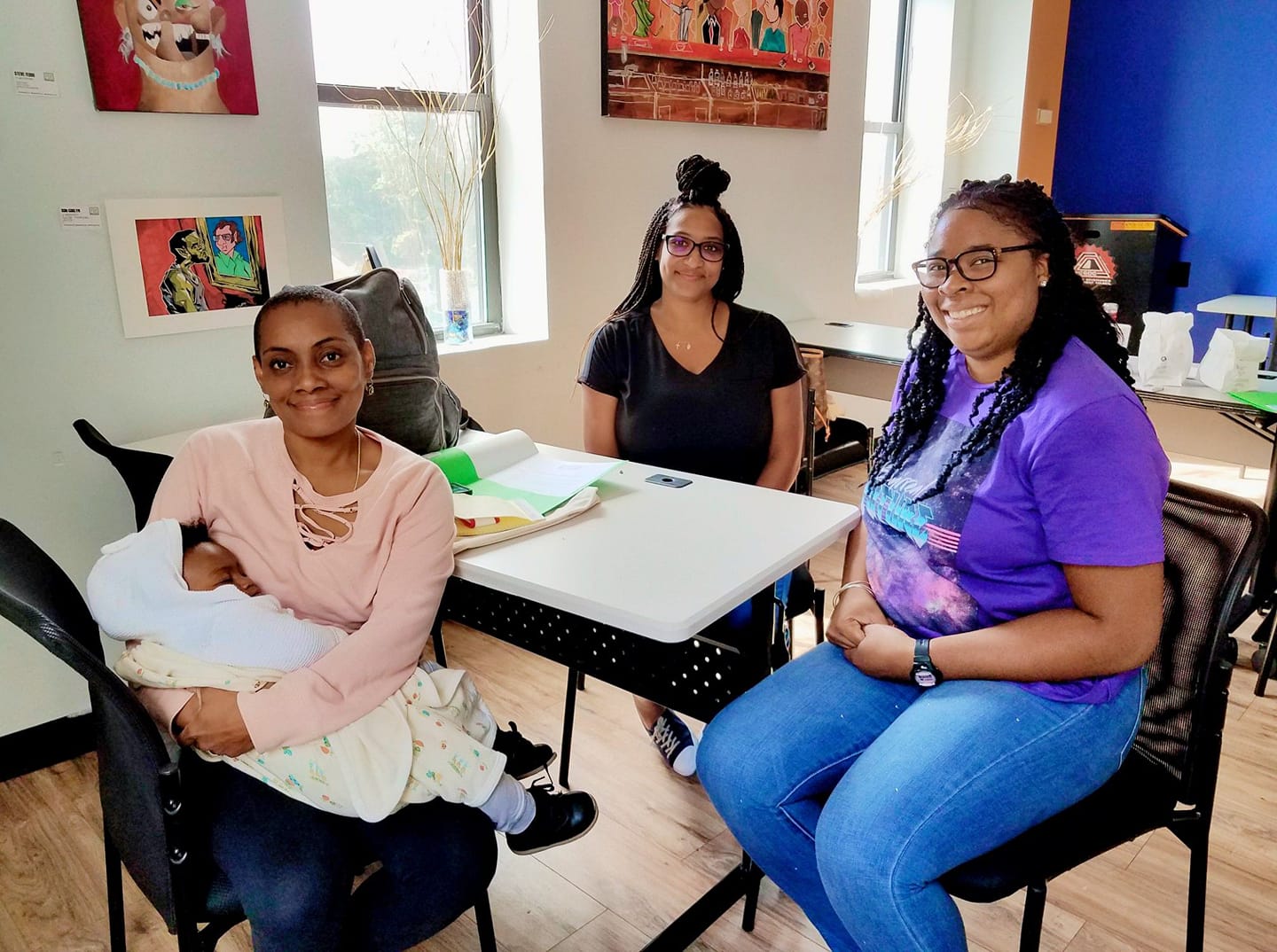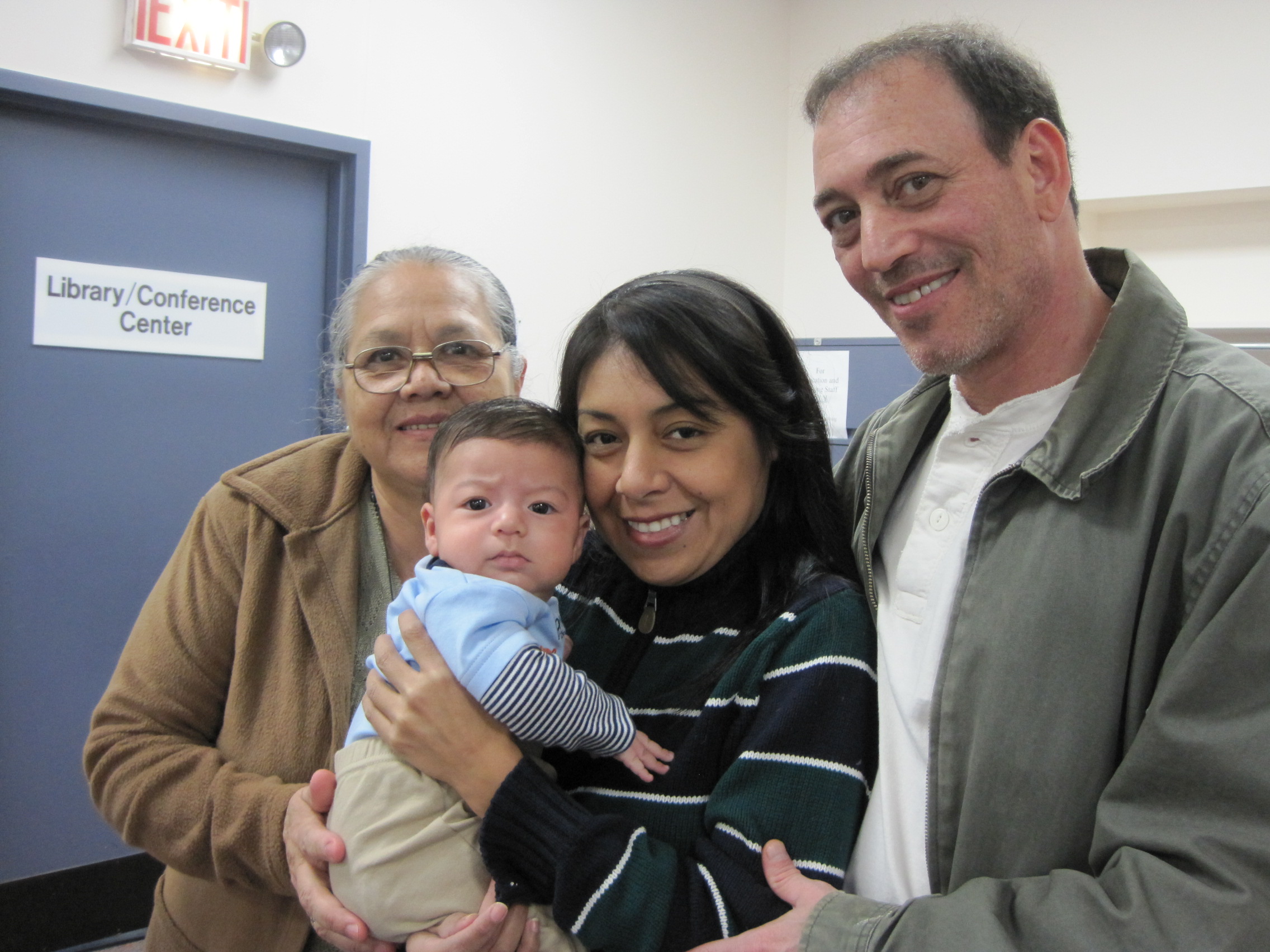An interview with BEBO's Erica Charpentier
Posted by Cindy on Mar 1st 2022
Erica Charpentier is the founder/director of BEBO (Birth Education Beyond the Ordinary), the organization that we have chosen as the beneficiary of our Winter 2022 Giving Project. Erica is also a knitter!
She recently spoke with us about BEBO and the important work they do.
Please tell us about BEBO's mission.
BEBO's mission is to stand with women, birthing people, and families in their childbirth year by providing access to comprehensive prenatal, childbirth, lactation, and postpartum education and support.
At BEBO, we envision a world in which women and birthing people are respected, informed, and supported in their choices during pregnancy, childbirth, and parenthood.
BEBO was founded in 2007 to support Westchester women and birthing people seeking a healthy, safe, and supported pregnancy, birth, and postpartum adjustment. Our primary activities include the Village of Mothers volunteer program, Family Financial Assistance, and the BEBO Scholars program, along with various community partnerships.

How did BEBO get started? How has it evolved over the years?
When BEBO was founded 15 years ago, we were focused exclusively on comprehensive prenatal birth education, based on the understanding that educated birthing parents are better positioned to make well-informed choices and begin their parenting journey with confidence. Over time, our understanding of the barriers to birth education, support, and confidence has grown and evolved, and our programs have as well. In addition to partnering with local community organizations for specific events, we currently run three programs:
1. Family Financial Assistance helps families who want to have a well-informed, supported birth and postpartum period, but lack the financial means to pay for the classes and services that prepare them for that experience. Extensive research shows that prenatal and postpartum education and support -- including childbirth education, breastfeeding classes, birth doula support, postpartum doula support, and lactation support -- contribute to improved physical, mental, and emotional outcomes, particularly for those families facing greater risks due to social determinants of health. BEBO’s Family Financial Assistance program bridges the gap between the cost of these services and what expectant families can pay. If a family knows what service they would like, but has been unable to find a provider, we can help with that as well.
2. The BEBO Scholars program provides scholarships to individuals of African descent training to become birth workers (childbirth educators, birth doulas, birth assistants, lactation educators and counselors, postpartum doulas, etc). This program was created in response to the Black maternal and infant health crisis in the US, and in recognition of the important role birth workers -- specifically, birth workers of African descent -- play in supporting and advocating for Black mothers and babies.
Once BEBO Scholars have completed their training programs and certifications, BEBO welcomes them to our roster of preferred providers and works to match Scholars with clients seeking perinatal education and support. BEBO Scholars are provided with the opportunity to list their services with local fee-based directories free of charge.

3. BEBO's Village of Mothers is a free service to families with newborns, through which trained volunteers are matched with families needing an extra pair of hands during their baby's early months.
In a culture where so many postpartum families report having insufficient support, Village of Mothers is here to help. Village of Mothers matches families of new babies (up to three months old) with trained volunteers for a one-month period. Since March 2020, volunteers have made themselves available for daily texting instead of in-person visits.
Our volunteers are trained to help without judgment and to respect each family’s culture and norms without imposing their own values. In non-COVID times, each volunteer spends an hour and a half with their matched family once a week for one month. During these visits, the volunteer helps with whatever that family needs: dishes, laundry, grocery shopping, accompanying the family to a doctor's visit, playing with older sibling(s), holding the baby while the parent takes a shower or a nap, or even sitting down for a cup of tea and some much-needed adult conversation. With text support, volunteers hold emotional space for parents, allowing them to vent and share their fears and frustrations without judgment or condemnation.
While these visits and texts provide an immediate boost of well-being, our families also benefit from Village of Mothers at a deeper level: This regular contact builds community and provides positive social support, which research shows acts as a buffer against postpartum depression.

How has the pandemic affected the work you do?
Oh boy! The pandemic has affected families in so many ways. In the early months of the pandemic, many hospitals were drastically limiting partner and doula presence during labor, delivery, and recovery. In addition, for safety and logistical reasons, many families with new babies couldn't access the extended family and community support that they would otherwise have relied upon postpartum. Birth professionals and volunteers quickly shifted strategies to find virtual ways to provide the care families needed.
What have been the biggest challenges?
The pandemic shift from hands-on care to virtual has been a challenge. One of the Village of Mothers' greatest strengths is offering exhausted parents the opportunity to rest while someone else does the dishes, and that just can't be replicated via text support. Since the vaccine has come out, we've tried a few times to return to in-person Village of Mothers support, but with the emergence of the omicron variant, we're just not there yet.
What has surprised you?
As a practicing lactation consultant, my direct experience of the shift to virtual has been in the lactation field. Initially, virtual lactation consults just seemed impossible, because so much of what we work on is related to the nuances of positioning and the direct evaluation of oral function. I was shocked to find that, with some restructuring and resetting of expectations, virtual consultations could be really productive and valuable to families! There's a satisfaction that parents have after a virtual visit in knowing that every single improvement came from their own actions.
How can members of the community help out?
Spread the word about our work! And if you or someone you know is grateful for their access to prenatal and/or postpartum education and support and would like to pay it forward so that others have access to the same level of care, we always welcome donations.
Is there anything else you would like to share?
Westchester County is famous for being a region of great wealth, yet the county is home to approximately 90,000 people living below the poverty line, the largest demographic being women between the ages of 25 and 34. The perception of universal affluence associated with the area can make it even more difficult for those without financial means to access the perinatal education and support they need, and further drives quality-of-life disparities. Because BEBO is invested in supporting marginalized communities, we partner with established local community agencies and organizations to meet the needs of the communities we serve. We have an organization-wide anti-discrimination policy that all participating families and volunteers must adhere to, and we actively recruit bilingual volunteers and provide services in English and Spanish, giving access to the many local families that speak Spanish at home.
Be sure to visit BEBO's website to learn more!

